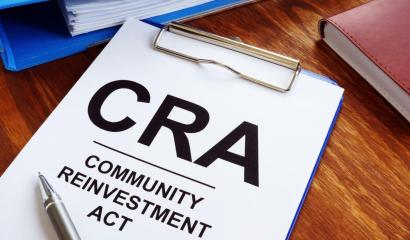Ali Abbas
What is greenwashing?
Greenwashing refers to a false environmental claim by a company to give the impression that they are sustainable. It’s a deceptive marketing practice to hoodwink consumers into believing that brands or businesses are more natural or eco-conscious than they actually are.
While it’s not a new issue, greenwashing is becoming more prevalent and concerns are growing. Pressure from the public and sustainability trends both contribute to this, with 67% of consumers holding expectations for brands to develop sustainable solutions. Recent regulations around green claims strive to improve consumer protection and transparency among the industry.
History and examples
The market for ethical consumption hit £41 billion in 2020. The climate crisis, combined with a focus on fossil fuel and renewable energy has increased the urgency of companies partaking in green marketing. Increased choice of ESG investments has also led to a magnified focus on greenwashing.
Greenwashing has a fine line since the claims you make are applied (and regulated) in an absolute manner. This means that they apply to the entire supply chain of your products. The fashion industry (fast fashion in particular) is a current trending debate subject for its environmental impact.
In 2011, Colourful Coffins were investigated by the Advertising Standards Agency for claims of “100% recycled cardboard coffins”. While the cardboard used was in fact recycled content, the glue used in construction alongside the outer paper was not, which means that these claims were unsubstantiated. Colourful Coffins subsequently changed their advertising to avoid the greenwash.
Also in 2011, hydrogen generator company h2gogo made claims that their product “reduced CO2 emissions by up to 40%”. After investigation, it was revealed that the nature of their testing was not robust enough and concluded to be a greenwashing tactic, misleading for the purpose of sustainable finance.
Global greenwashing regulations
Since it’s a newer area of regulation, there are no centralised global rules regarding green claims. However, there have been a few recent updates to anti-greenwashing guidelines that can help inform your practices.
EU
The European Commission has delegated a group to tackle this issue through the European Green Deal. It assesses how substantiated any environmentally-friendly claims are, by brands who focus on sustainability in their advertisements.
Established in 2015, the circular economy action plan sets out actions to improve the whole life cycle of the economy; from initial production to recycled materials and waste practices. The main aim of this framework enables the EU to improve the number of companies striving toward sustainable futures. However, actions are also directed towards investigating, comparing and verifying the claims of any company partaking in green marketing to avoid greenwashing.
UK
The UK has two consumer protection bodies that help in substantiating the green claims of businesses;
- Advertising Standards Authority (ASA)
- Competition and Markets Authority (CMA)
The ASA is already well-established in substantiating environmental claims and avoiding greenwashing. The consumer protection body approaches whether claims are misleading to customers and therefore contribute to mis-selling. In September 2021, the ASA announced new ESG regulation around socially responsible advertising contextualised by the UK markets. They also committed to enquiries associated with the Climate Change Committee priorities.
The environment is a newer focus for the competition and markets authority. In September 2021, the CMA released a statement warning businesses that they have until the new year to ensure their environmental claims match up to the standards set out in the Green Claims Code. This pre-emptive measure will be beneficial for businesses to get their affairs in order to avoid potential penalties.
Meanwhile, the FCA has noted that greenwashing will be on its agenda for 2022. In a speech regarding 2022 priorities, FCA Executive Director, Sarah Pritchard said that “firms need to ensure they have a credible strategy to integrate ESG criteria into their investment processes, including applying sufficient scrutiny to ‘green’ or ‘sustainable’ claims”.
US
In the US, it was generally expected that greenwashing would be low on the regulatory agenda given its proclivity to move slowly on ESG issues over the last few years. However, as CUBE noted in it’s Climate Change Risk report, the US is actually further ahead than many would expect. This extends to greenwashing, too. The US Securities and Exchange Commission is currently working alongside Germany’s BaFIN to bring a case of ‘misleading information’ against a large German bank. It is reported that the bank made false claims about its sustainable credentials – greenwashing in all but name.
In March 2021 the SEC Division of Enforcement announced the creation of its Climate and ESG Task Force – and the US House of Representatives is attempting to pass the ESG Disclosure Simplification Act. Both of these actions will make concerted efforts to prevent greenwashing claims from arising, as well as giving investors the knowledge needed to spot greenwashing where it occurs.
Greenwashing is likely to be a major part of the regulatory agenda in 2022, so it’s important for companies to stay ahead of regulatory developments and protect both their brand and their consumers.







